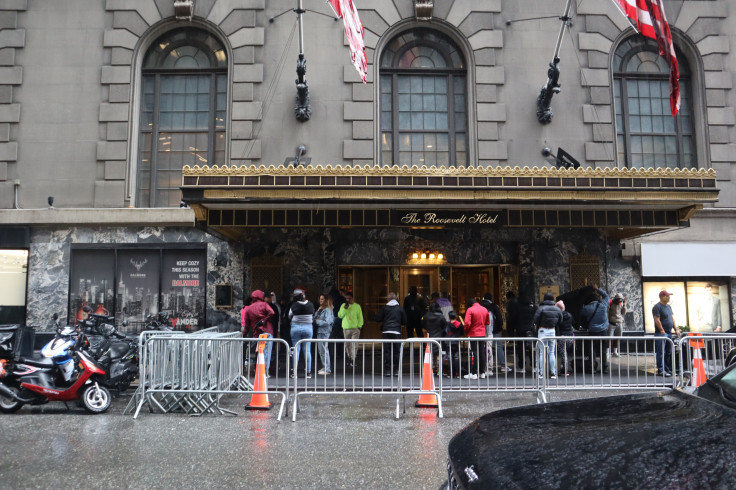
NEW YORK CITY - As temperatures in New York City— and all over the country— reached extremely low levels this past week, migrants in homeless shelters scrambled to remain safe and warm during snow storms and wind chills. While some cities issued travel warnings, advising people to stay inside, this did not stop groups of migrants from camping overnight outside a city office, hoping for something they may not be able to get. The reason for this? Misinformation.
Following a series of eviction notices as they reached their 60-day-limit in homeless shelters in New York City, some migrants became desperate to find a job and possibly become self-sufficient. But a series of bureaucratic obstacles and confusions persisted instead.
"They [shelter workers] told me I need the city ID first, so then I can start the application for the work permit," Jimmy Darwin told The New York Times.
Darwin, a migrant from Peru, was one of the dozens of immigrants who made their way overnight to wait in sidewalks outside of city offices, trying to apply for a New York City-issued identification card, or IDNYC. He built a little house for his 9-year-old daughter and his wife out of cardboard boxes and a suitcase to shelter them from the 20-degree weather.
Appointment to apply for the IDNYC card book up almost immediately, but the office on Third Avenue in the Boerum Hill neighborhood takes some walk-ins, and those are the spots the migrants hope to secure. There is currently no option to hold places in line, which is why these migrants scrap to wait long hours in the cold until the office opens in the morning.
Just like Darwin, several migrants report they were told contrasting steps to formally process a work authorization. One of the versions told to them was to apply for IDNYC.
In reality, this is not necessary, since IDNYC does not provide work authorization, or affect immigration status.
"We continue to work to address any misconception around this," Neha Sharma, a spokeswoman for the Department of Social Services said.
Noah Habeeb, immigration clinic director at the Ark at Congregation Beit Simchat Torah in Manhattan, which helps migrants defend themselves in immigration proceedings, said that an IDNYC card could help someone applying for work authorization, but only in rare cases that don't apply to most migrants.
Despite these discrepancies, migrants are still showing up to the offices to get an IDNYC.
"Folks are just so desperate to work that they will do anything they possibly can to help in whatever they think might increase their chances," City Councilman Lincoln Restler said.
Restler, whose district includes the building that houses the IDNYC office taking walk-ins, brought over a bag of blankets for migrants this past Wednesday. Some people grabbed blankets from others, who yelled and cursed. A few took more than one blanket and went back to their sleeping spots.
But the identification card is not the only misconception being communicated to immigrants.
Last week, the city began issuing eviction letters to families approaching the 60-day limit on stays at any one shelter. Some migrants were told that after their 60-day period was over, they had to leave their shelter, and had no option of being housed anywhere else in the city.
The reality however, is that New York City's unique "right to shelter" law requires it to offer beds to every homeless person that requests one.
One of the reason for such mounting desperation comes after state and city governments grapple with the cost of the immigrant crisis. On Tuesday, Gov. Kathy Hochul announced a state budget that includes $2.4 billion to help New York City with migrants, a $500 million increase over last year. On the other hand, New York City's mayor, Eric Adams, has reduced the projected three-year cost of housing and feeding the migrants by 12 percent, to about $10.6 billion, down from $12 billion, in part by spending less on services for them.
"We are not out of the woods," Adams said in a speech at City Hall this week. "While we have put New York City on the right track, to keep moving forward, we still need help from the federal and state governments."
© 2024 Latin Times. All rights reserved. Do not reproduce without permission.







